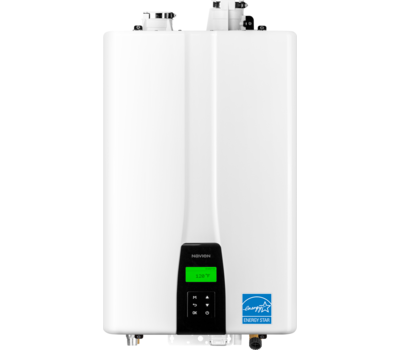Keeping It Warm: A Guide to Hydronic Heat Maintenance in Northern Colorado
- joshfisher8
- Feb 20, 2025
- 3 min read
Oh, the joys of living in Northern Colorado! The breathtaking mountain views, the crisp air, and let’s not forget those nippy winters that make you appreciate a warm, cozy home. But hang on a minute—what keeps your sanctuary snug when the mercury drops? For many, it’s the magic of hydronic heating, a system that circulates hot water through radiators or underfloor tubing to provide consistent warmth. But like any magical system, it requires a little TLC to keep it running smoothly. So, what’s the scoop on hydronic heat maintenance in Northern Colorado? Let’s dive in!
Understanding Hydronic Heating Systems
Before we jump into maintenance, let’s break down what makes hydronic heating such a popular choice:
Efficiency: By using water as a heat transfer medium, these systems are more efficient than traditional forced-air systems.
Comfort: Hydronic systems provide consistent heat without the drafts and temperature fluctuations of forced air.
Quiet Operation: No noisy fans or blowers; just silent, even heating.
Zoning Options: Customize temperatures in different areas of your home.
Why Maintenance Matters
Like any home system, regular maintenance is crucial to ensure your hydronic heating system operates efficiently. Neglecting it can lead to reduced performance, higher energy bills, and potential system failures. Plus, who wants to deal with a cold home when the snow is falling?
Essential Hydronic Heat Maintenance Tips
Annual Boiler Inspection: Your boiler is the heart of the system. An annual check-up by a professional can prevent costly breakdowns. They’ll look for corrosion, leaks, and ensure the burner is functioning correctly.
Bleeding the Radiators: If your radiators aren’t heating evenly, they may have trapped air. Bleeding them releases this air, improving efficiency.
Check the Pressure: Your system should maintain a certain pressure level. If it’s too low or too high, it could indicate a problem.
Inspect the Expansion Tank: This component allows water to expand as it heats. Ensure it’s not leaking and is functioning properly.
Clean the Heat Exchanger: Over time, mineral deposits can build up, reducing its efficiency. Cleaning it regularly can help maintain optimal performance.
Monitor Thermostats and Zone Valves: Make sure they are functioning properly and set to the correct temperatures.
Use Quality Water: Hard water can cause scaling, so consider using water softeners or conditioners to prolong the life of your system.
Regularly Test the Safety Controls: This includes pressure relief valves and other safety mechanisms.
Hydronic Heat Maintenance in Northern Colorado: Local Considerations
Living in Northern Colorado comes with its unique challenges. The fluctuating temperatures and altitude can affect your hydronic system differently than in other regions. Here are a few local tips:
Altitude Adjustments: Higher altitudes can impact boiler efficiency. Make sure your system is calibrated for Greeley’s elevation.
Cold Snaps: Sudden temperature drops can put additional strain on your system. Regular maintenance can help you avoid emergencies.
Water Quality: The mineral content in Northern Colorado’s water can affect your system. Regular testing and treatment are recommended.
FAQs
1. Is hydronic heating suitable for all homes?Absolutely! Whether you’re building a new home or retrofitting an existing one, hydronic systems can be tailored to suit your needs.
2. How often should I have my hydronic system serviced?An annual check-up is recommended, but keeping an eye on its performance throughout the year can catch minor issues before they become major problems.
3. Can I maintain my hydronic system myself?While some tasks like bleeding radiators can be DIY, it’s best to leave the more technical maintenance to professionals.
4. What are the signs that my system needs maintenance?Uneven heating, strange noises, rising energy bills, and frequent cycling on and off are all signs your system may need attention.
5. Are there any government incentives for upgrading to hydronic heating?In some cases, yes. Check with local energy providers or government websites for any available rebates or incentives.

There you have it! Keeping your hydronic heating system in tip-top shape doesn’t have to be a chore. With regular maintenance and an understanding of the local conditions in Northern Colorado, you can enjoy a warm and efficient home all winter long. Remember, an ounce of prevention is worth a pound of cure. So, stay proactive, and your system will thank you with years of cozy comfort.



Comments